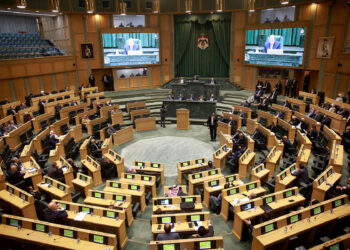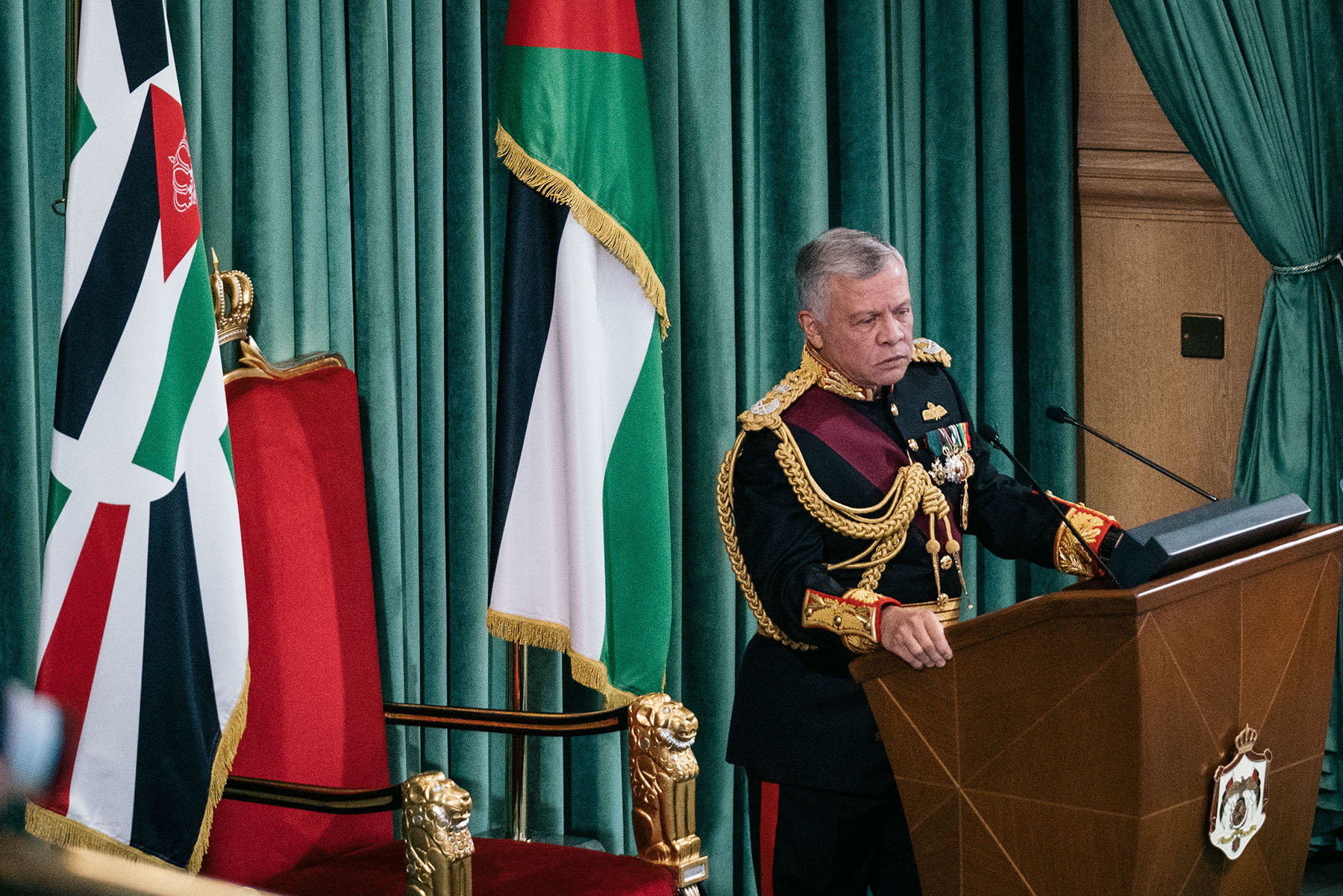*Ahmad Algohbary is a freelance Yemeni journalist who has reported on the Yemen war for international media since war broke out in 2015. His work has appeared in The Guardian and Al Jazeera English, among other outlets. As Co-Director of Photography, Aloghbary filmed the 2018 documentary “Yemen Skies of Terror,” which was nominated for Emmy and Sheffield Awards, and won an online journalism award. Algohbary has also launched a public funding campaign via his Twitter account to provide support for child victims of the war. He tweets at @AhmadAlgohbary.
A truce is meant to be more than just a cessation of hostilities. For countless lives affected by the ravages of conflict, it is a beacon of hope that peace may finally be on the horizon. Yemen's truce was met with optimism when it was brokered by the United Nations last year. Even after it formally expired in October 2022, the truce has largely held since then. Yet it has struggled to meet not just the high expectations of being a harbinger for peace and stability in Yemen, but even the more basic terms and commitments of its initial agreement that aimed "to address humanitarian and economic needs."
Although restrictions on imports into Yemen have eased with more fuel permitted into the blockaded port of Hodeida, other tangible benefits for Yemeni civilians remain elusive, especially in Houthi-controlled areas. In the capital, Sana'a, and other areas under Houthi control in northern Yemen, where Yemenis once only whispered about the Houthis' lack of governance and corruption, discontent is now getting louder.
Yemen's truce held the promise of ending one of the most harrowing conflicts in decades which, as the U.N. has been warning for years, has created the world's worst humanitarian crisis. While the battle scars are evident across Yemen's devastated towns and cities, they are also indelibly imprinted on the lives Yemenis themselves—some 4.5 million of whom are currently displaced, and have often been displaced more than once throughout the war. More than 20 million Yemenis, two-thirds of the population, are in dire need of humanitarian aid and protection and six million Yemenis are on the edge of famine, according to the U.N.
A young social activist based in Sana'a, Lutf Alsanani, gives voice to the growing sense of hopelessness on the ground. "We celebrated promises of reform, but today, corruption is so pervasive it feels suffocating," he said in an interview. "The enormity of corruption we face is beyond what words can capture."
In the capital, Sana'a, and other areas under Houthi control, where Yemenis once only whispered about the Houthis' lack of governance and corruption, discontent is now getting louder.
- Ahmad Algohbary
A report in 2021 by independent sanctions monitors at the U.N. accused the Houthis of diverting at least $1.8 billion in state revenue in 2019 to fund its war effort. The report also accused Yemen's internationally recognized government, based in Aden, of money-laundering and corruption "that adversely affected access to adequate food supplies."
"Two years into the truce, we see teachers without shoes and students without books," Alsanani said. In a stark contrast, Houthi-backed "cultural courses"—essentially indoctrination programs in place of schooling—flourish, their coffers seemingly full. Funds supposedly earmarked for educators seem to vanish. Doctors go unpaid too. Bombed-out roads that now resemble wilderness paths claim lives and livelihoods through frequent accidents. At the port of Hodeida, once the bustling heart of Yemen's trade, ships offload goods and pay their duties, but countless workers still await salaries—their patience wearing thin with each passing day.
The price of fuel is another enigma. The global market saw a dip in oil prices while the truce promised a relaxation, if not a complete lifting, of import restrictions, most of all fuel. But fuel prices in Yemen refused to follow global trends. The math doesn't add up. Where, one wonders, is the fuel surplus being funneled to?
Then there's the electricity crisis, another unending ordeal for Yemenis. Flickering bulbs and prolonged blackouts have become a dreary norm, putting homes, businesses and critical services in the dark. Hospitals already overwhelmed with the sick and injured, where life often hangs by a thread, must also battle erratic power supplies.
The country's tattered roads tell their own tales of destruction and neglect. As the Sanaa Center for Strategic Studies noted in a report earlier this year, at least 100 bridges and about a third of all of Yemen's paved roads have been destroyed in the war—between 5,000 and 6,000 kilometers in all. Despite generous international aid pledges, Yemen's roads remain untouched by any repairs, grinding much of life to a halt. Many Yemenis have simply had to give up on traveling long distances unless they have no other choice.
On the streets of Sana'a and other cities under Houthi control, mounds of garbage greet you, a testament to the Houthis' glaring oversight and seeming indifference to public health.
The truce, which is still fragile, was supposed to be an initial step toward a peaceful settlement in Yemen, not an end in and of itself. Yet it seems to have frozen Yemen in limbo.
- Ahmad Algohbary
"We envisioned a brighter, better post-truce life," said Ali Alansi, a Yemeni pharmacist in the Houthi-controlled north. "Instead, we are confronted with the shadows of neglect and the specter of corruption."
Mohammed Alweshali, a health sector employee from the city of Dhamar, located between Sana'a and Taiz, echoed these frustrations. "After the cease-fire, we hoped for improved living standards," he said. "Instead, we've seen petroleum prices surge from 300 to 450 riyals per liter (from $1.20 to nearly $2) and food burdened by excessive taxes."
Alweshali pointed to the deceptive allure of progress that is usually attached to the truce, like the easing of the blockade. "Although the lifting of port restrictions might seem like a step forward, for the average Yemeni, it offers little relief," he said. "Importers, faced with high fees and minimal oversight, amplify costs, impacting us directly."
It is a reminder that the truce, which is still fragile, was supposed to be an initial step toward a peaceful settlement in Yemen, not an end in and of itself. Yet it seems to have frozen Yemen in limbo. Yemenis who have endured years of conflict deserve more than that.































![Security forces loyal to the interim Syrian government stand guard at a checkpoint previously held by supporters of deposed president Bashar al-Assad, in the town of Hmeimim, in the coastal province of Latakia, on March 11, 2025. Syria's new authorities announced on March 10, the end of an operation against loyalists of deposed president Bashar al-Assad, after a war monitor reported more than 1,000 civilians killed in the worst violence since his overthrow. The Syrian Observatory for Human Rights said the overwhelming majority of the 1,068 civilians killed since March 6, were members of the Alawite minority who were executed by the security forces or allied groups. (Photo by OMAR HAJ KADOUR / AFP) / “The erroneous mention[s] appearing in the metadata of this photo by OMAR HAJ KADOUR has been modified in AFP systems in the following manner: [Hmeimim] instead of [Ayn Shiqaq]. Please immediately remove the erroneous mention[s] from all your online services and delete it (them) from your servers. If you have been authorized by AFP to distribute it (them) to third parties, please ensure that the same actions are carried out by them. Failure to promptly comply with these instructions will entail liability on your part for any continued or post notification usage. Therefore we thank you very much for all your attention and prompt action. We are sorry for the inconvenience this notification may cause and remain at your disposal for any further information you may require.”](https://dawnmena.org/wp-content/uploads/2025/04/syria-22039885951-360x180.jpg)






